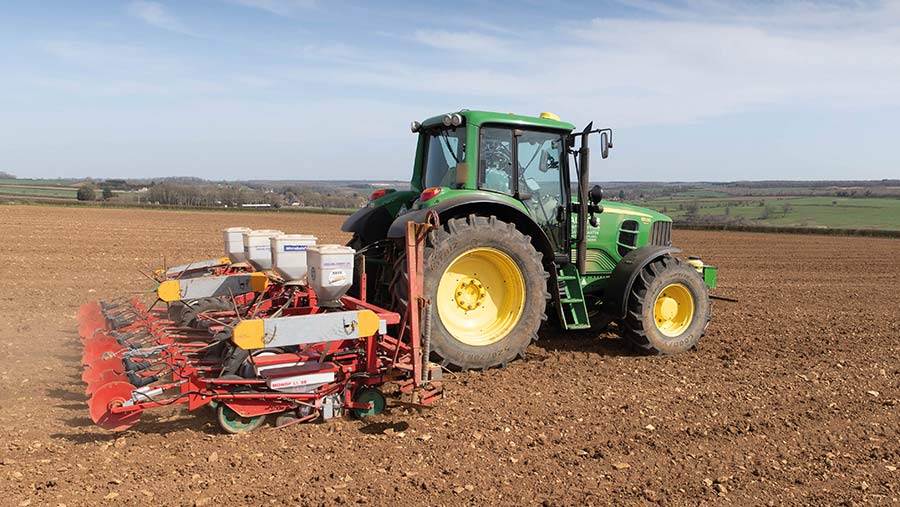Neonics get green light for use on sugar beet seed this spring
 © Tim Scrivener
© Tim Scrivener Sugar beet growers will be able to plant seed this spring coated with Cruiser SB (thiamethoxam) neonicotinoid seed treatment, providing essential protection for crops from virus yellows spread by aphids.
At the end of January, Defra granted a derogation to use the controversial seed treatment, which had originally been banned by the EU in 2018, subject to strict conditions.
See also: Defra approves neonics seed treatment for sugar beet crops
One of these was that the official Rothamsted forecast, which predicts the likely incidence of virus yellows in the season ahead, should exceed 63%.
On Wednesday 1 March, Rothamsted Research, which conducts the assessment under contract to the British Beet Research Organisation (BBRO), confirmed a predicted rate of 67.51%.
This is based on modelling that considers winter temperatures, the likely timing and size of the spring aphid migration, and predicted emergence dates.
Warmer winter
Mark Stevens, head of science at BBRO, said the higher threshold reflected the fact that January and February were much warmer than many had expected, with an average temperature of 5.8C, and one day reaching 16C in East Anglia,
“Many aphids had survived the cold snap we had last December and the population does recover at those temperatures,” he said. “Warmer nights made a big difference.”
Dan Green, agriculture director at British Sugar, said the seed treatment was necessary to protect the UK sugar beet crop and farmer livelihoods.
“The emergency authorisation contains strict controls to protect wildlife, including restrictions on using the treatment near any flowering crops,” he added.
Relief
The news has come as relief to growers, especially as the threshold for this year was raised to 63%, compared with 19% in 2022.
“It was always going to be close,” said Norfolk grower Kit Papworth. “But the weather has not been as cold as expected, leading to an increased risk.”
There was definitely demand for seed treatment, especially from growers in the higher-risk areas, he said.
And while the addition of a neonicotinoid seed covering would push up the cost of seed and potentially delay deliveries, there was currently little alternative.
In 2020, 25% of the national sugar beet crop was lost to virus yellows, costing an estimated £67m across the whole industry.
